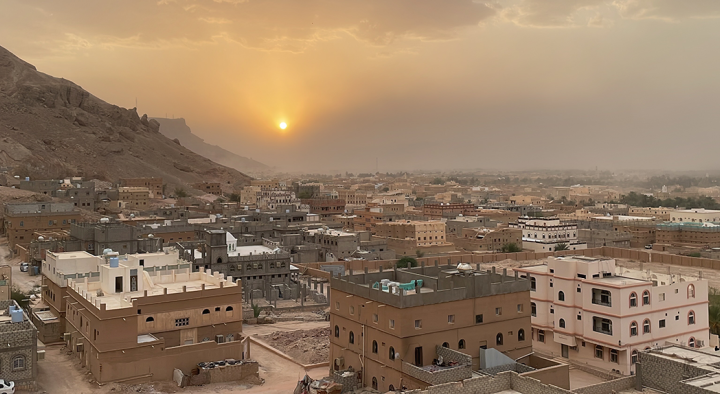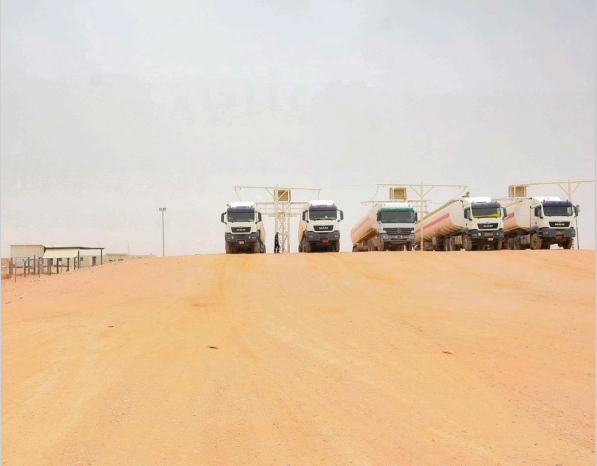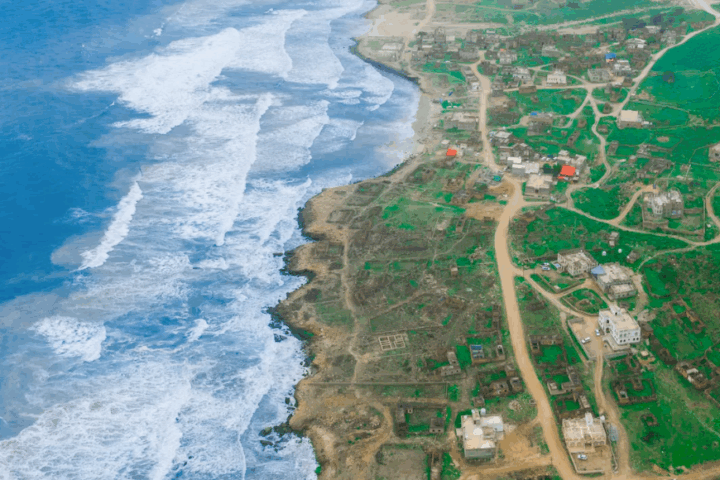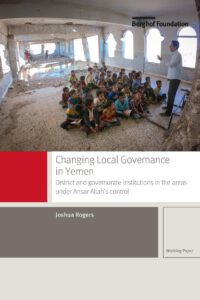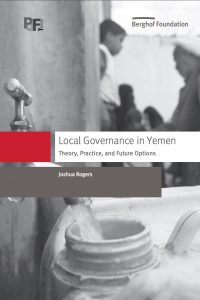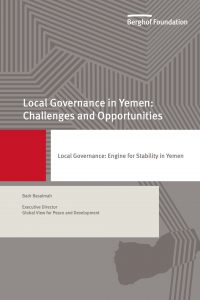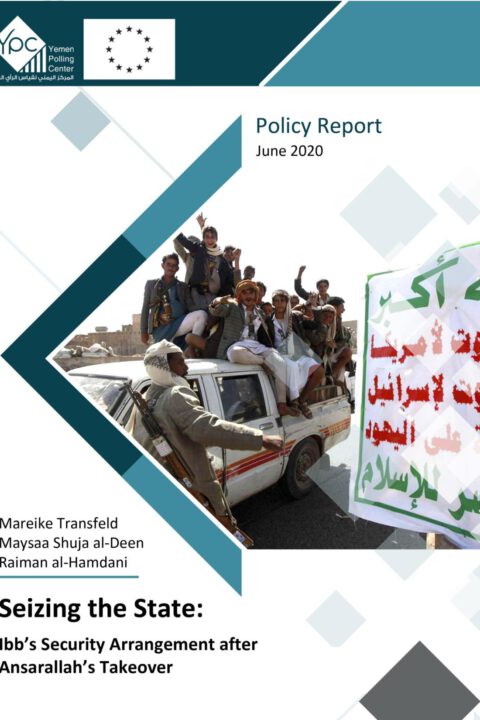
Study of Ansar Allah’s takeover of security institutions in Ibb governorate and its impact on the role of the police, aqils, and tribal leaders. Includes a discussion of changing popular attitudes to the police in Ibb and a look at how power shifted away from local elites.
Seizing the State is part of a series published within the framework of Rebuilding Peace and Security, a project funded by the European Union’s Instrument Contributing to Stability and Peace and implemented by the Yemen Polling Center between 2016 and 2019. The project builds on the premise that security in Yemen is both provided and spoiled by the competing diverse actors involved in the ongoing conflict there.1Dimitris Soudias and Mareike Transfeld, Mapping Popular Perceptions: Local Security, Insecurity and Police Work in Yemen, YPC Policy Report 3, Yemen Polling Center, July 2014, http://www.yemenpolling.org/Projects-en/YPC-Security_Report_2014.pdf. The actors’ varying numbers and deployments mean that measures to address security concerns cannot be standardized across the country. Instead, approaches to security sector reform must be adapted to meet individual local and regional challenges, including integrating non-state security actors into a broader, state-run framework for security provision. A broad set of actors—state and non-state security, civil society, media, neighborhood organizations and women and youth groups—needs to be considered when seeking to rebuild stability and security at the local level.
The series concentrates on different areas in Yemen with the aim of shedding light on local security providers, assessing the situation of local state and non-state structures, cooperation between security providers and challenges to security provision. Seizing the State focuses on Ibb governorate and the dynamic landscape of security providers there. In particular, it examines how Ansarallah rules there in the context of the province differing significantly from the group’s home base farther north, in Saada, in terms of social organization, religious composition and political and patronage networks. Ansarallah swiftly, and for the most part peacefully, took control of state institutions in Ibb in 2014. The governorate remains relatively safe, but Ansarallah’s presence has of course affected local security arrangements. In consolidating power in Ibb, Ansarallah not only infiltrated and took control of state institutions, it also marginalized local elites.
This report draws on information from different sources, including quantitative data collected as part of nationwide representative surveys conducted by YPC in November 2012, May 2017 and April–May 2019.2Due to the volatile political and security situation in Yemen and the high-risk surrounding data collection, especially on security institutions, YPC, as a seasoned data collection agency, has adopted measures and protocols to ensure staff safety and to mitigate risks to them. These risk management measures directly impact YPC’s research methodologies in terms of the selection of localities. YPC avoids conducting research in areas of active conflict. All the surveys were conducted face-to-face. Female interviewers questioned female respondents, and all the enumerators worked in the areas where they live, to guarantee that local dialects would be understood. Of the data collected during the nationwide surveys, only that from the governorate of Ibb was used in producing Seizing the State.3Interviewees nationwide were selected on the basis of a simple random sample from among 44,339 primary sampling units, i.e., villages in rural areas and neighborhoods in cities. Ten interviews—five of women and five of men—were conducted in each unit. The sample reflects the rural/urban population distribution, with 68 percent of the interviews conducted in rural areas, half of them with females, half of them with males. The nationwide survey in 2012 had a sample of 1,990, with Ibb represented by 220 respondents and a margin of error of 6.33. Both of the nationwide surveys from 2017 and 2019, each with a sample of 4,000, had a margin of error of 4.38. Both of the samples of data collected in Ibb during them consisted of 450 respondents and had a margin of error of 4.5.
In February 2018, YPC conducted a focus group discussion with 11 youth activists in Ibb to gauge their perceptions on security in the governorate. Another set of data was collected between October 2018 and May 2019 through key-informant interviews with a total of 30 people consisting of military and police officers, state security officials, sheikhs, aqils, members of armed groups, landowners and journalists. YPC field researchers also collected data from observing security incidents and the responses of security providers to them between January and April 2019. Gaps in information were closed by drawing on the literature as well as the knowledge of the authors and the Ibb-based field researchers.
Other resources you may be interested in:
The Hadhramawt National Council: A strategic move or a tactical reaction?
Discussion of the HNC’s potential to serve as an inclusive platform for Hadhrami aspirations and its challenges in establishing a clear strategic direction, while analysing whether it represents a strategic initiative or a tactical response to regional and local dynamics. The paper recenters HNC’s main role as to unify various Hadhrami movements advocating for greater […]
Recovering Lost Ground in Shabwa’s Oil Sector
Policy brief highlighting the pivotal role of the governorate of Shabwah in Yemen’s oil sector. It criticises the predominant role of international oil companies and the central government in Shabwah’s oil sector, and proposes a localisation, including the establishment of a local oil refinery, to meet local demands and to become more sensitive to developmental, […]
Extreme Weather and the Role of Early Warning Systems in Yemen: Al-Mahra as a Case Study
Policy brief on the effects of extreme wheather events in Al Mahra, exploring the perception of Mahrawis on the impact of climate change on agriculture, infrastrucure and their personal lives. Recommendations include ways for local authorities to develop an emergency response strategy in order to improve their ability to deal with (the aftermaths of) extreme […]


